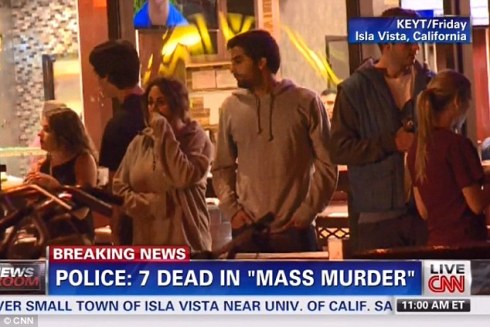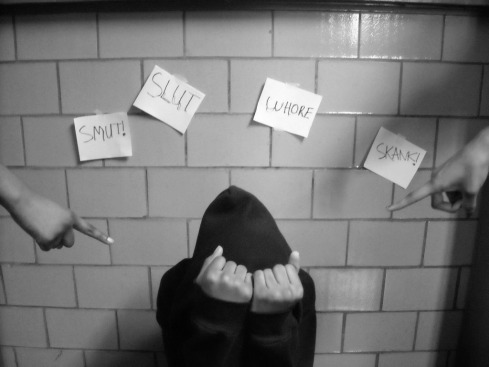Disney.
Now there’s a word that’s bound to conjure up some kind of feeling in pretty much everyone in the western world. And, I mean, love ’em or hate ’em (and there are tons of people in both camps), you can’t ignore the fact that, as a brand, they’ve had an enormous cultural impact.
My own relationship with Disney is pretty ambivalent. I grew up watching the movies, and I would be lying if I said that there aren’t a few of them that I can still quote, verbatim, to this day – especially Disney’s Robin Hood. Man, I watched the shit out of that movie, and I still love it, even now. I like to joke that it was my introduction to the social justice movement; it was the first time that I’d ever realized that just because something was against the law didn’t mean that it couldn’t also be morally right, and it taught me that even just a few people standing up against powerful government forces could affect change. I also think that that movie was the beginning of my love for all things historical, especially the medieval period in Europe. And yeah, for sure, Disney didn’t come up with the story of Robin Hood, but they did present it in a way that was fun and relatable for children, and they added foxes. Man, I love foxes! In fact, I can’t help but wonder if Disney’s Robin Hood is responsible for that, too.

Disney’s Robin Hood also taught me that men can cook and do their own laundry!
As a teenager and young adult, I became pretty critical of Disney and all that it stood for. I became conscious of the toxicity of “princess culture,” and began to question why basically everyone in their movies was white. I became cynical of how aggressively Disney tried to breed brand loyalty among even the youngest of children, up to and including offering free Disney onesies to new babies in hospitals. On top of that, the more that I learned about Walt Disney and his business practices, especially the special deals that he brokered in Florida while building Disney World, the more weirded out I became.
Still, when my mother announced a family vacation to Disney World a few summers ago, I was game. I’d never been before, but my mother and sisters had done the Disney thing back in 2005, while I was still living in Halifax, and I knew that they’d had a blast. It wasn’t so much about the brand or even all the fun things to do, my family insisted, it was about how well the staff treated you, how special and important you felt. And when my family and I, my five-month-old son in tow, descended on Disney World in July of 2011, I discovered that they were right. And maybe it was because I was still in the middle of that funny culture shock that comes after you have a kid, those few months where you’re slowly and painfully discovering that the world is nowhere near as easy to navigate as you once thought it was, but I remember being so incredibly grateful for the fact that Disney World seemed to have thought of absolutely everything when it came to dealing with families with small children. Disney World was the first place that I’d ever taken Theo where I didn’t feel like my child’s needs were a burden or a hassle to the staff.
And let’s just get one thing straight here: Disney’s staff are excellent. Really, really excellent. They are people that the company should be incredibly thankful for. Instead, as I’ve recently learned, Disney doesn’t have much interest in caring for or protecting their staff. In fact, when it comes to the issue of sexual assault in the workplace, they’re pretty happy to throw their female employees to the wolves and wash their hands of any responsibility.
In fact, Disney is pretty firm on the idea that if you are an employee who was raped while drinking and socializing with employees of the opposite sex, then it’s all your fault.
Many of you have probably already read Dana Wierzbicki’s post on XOJane from Monday called “It Happened To Me: I Was Raped Disney World And Nobody Cared” – for those of you who haven’t, I’ll give you a brief rundown:
Dana was an employee at Disney World while participating in the Disney College Program, a program that allows post-secondary students from all over the world to come live in Florida, work at Disney World, enjoy unlimited access to the parks all summer, and take a few courses in business management on the side. It should have been the best summer of Dana’s life, and it was, up until she was raped by a co-worker. She says,
He and I went to a party together, we went back to his apartment later, and I said “no,” but he wouldn’t stop.
For two months I kept everything that happened that night to myself. I told my roommates that things went fine and I had a good night. I didn’t know how to feel about what happened. In the beginning, I told myself it was a misunderstanding; maybe he hadn’t heard me. I blamed myself; I should have yelled louder. I should have pushed harder. I should have punched him and ran out of the room. I always thought that if I was ever raped I would beat the guy up. Does that mean I wasn’t raped?
After trying to handle the emotional and physical fallout of the rape on her own, Dana eventually decided to seek help from the counselling service that Disney provided. This decision, she writes, was triggered by the fact that she later saw her rapist flirting with other girls at a party, and realized that if she didn’t do something, anything, then he would almost certainly end up raping someone else.
Her experience with the counselling service was, unfortunately, pretty grim. At one point, the counsellor told her, “Well, now you know not to be hanging around boys in the middle of the night. You know what they want.”
When Dana told her about seeing her rapist flirting with girls at a party and expressed concern that he was likely to rape again, the counsellor took this to mean that she was jealous of the attention that these other girls were receiving. She advised Dana to show up at the next party looking “hot” and tried to reassure her by saying, “You’re a pretty girl. I’m sure you get all the boys.”
Dana then spent several days trying to figure out how she was supposed to properly report her rapist. She was passed from one department to another, and no one seemed to be entirely sure who or what was supposed to handle this type of stuff. Finally, she spoke to someone in Employee Relations who gave her more victim-blaming bullshit and told her that she should have gone to the police back when the rape had happened, but there was nothing that anyone could do now. The woman in Employee Relations told Dana that they would open an investigation, but likely nothing would come of it.
Dana flew home and tried to resume her normal life, but she did follow up with the Employee Relations office several times. She was eventually told that her case had been closed. She called a friend of hers who was still working at Disney World and was told that her rapist was still employed there, and had suffered no repercussions for what he’d done.
After reading Dana’s story, I was admittedly shocked by how terrible Disney’s response was. Surely they couldn’t actually care so little about their employees, could they? Dana’s experience must have been a fluke right? So I spoke to my friend Laura*, who had also participated in the Disney College Program, and asked her if any of Dana’s story meshed with what she’d seen during her own time at Disney World. She said that Dana’s experience unfortunately wasn’t uncommon, and that she’d realized from pretty much day one that Disney was not interested in dealing with sexual assault. She said,
In my first week I was in a room with about 250 Canadian kids learning the rules of the dorms and this big, corporate guy comes in and starts talking to us. He tells us – and I’m paraphrasing a little here – that this is a high crime area and there are sexual assaults regularly around the dorms. That if you are a girl, you should not go out after dark alone, or you might get assaulted. That you should not go to the bars, and definitely not alone, because ‘girls get drugged.’ That you should not make friends with strange men, not go into other people’s dorms alone and not dress provocatively, because girls get assaulted and go home all the time. And if you do get assaulted, don’t go to the housing department, call the police, because there is nothing that housing or Disney can do for you.
And, you know what, without even touching on any of the victim-blaming bullshit that Disney is spewing, can we talk about how fucking ridiculous this is when it comes to anti-rape advice? Like, you are bringing in hundreds of people in their teens and early 20s to work and live together, and you somehow think that it’s sensible to tell people not to associate with the opposite sex? Not to drink? Not to wear “provocative” clothes? Not to go to boys’ dorm rooms? Like, that’s what these kids are there for – I mean, yeah, they are there to work at Disney, but a lot of them are also there to have a good time, and that good time involves drinking and having sex. That is what a lot of people do, and just flat-out advising them not to do it is not going to change anything. But Disney, meanwhile, feels as if they’ve covered all of their bases, and if a girl ends up being the victim of a sexual assault, well, Disney doesn’t want to hear about it because it’s all her fault.
And before you jump in and say that Disney has no control over what their employees do within the comfort of their own apartments, and that the girl should have gone to the police instead of Disney, let’s be clear on something – these dorms and apartments are belong to Disney. Laura says,
[The apartments] are not in “Walt Disney World” itself, they are about 10 minutes away in Lake Buena Vista, FL. Which is fine. They are contracted out from Disney and run by a separate property company for maintenance and stuff, but they are gated residence complexes run exclusively for the Disney college program, the rent money is taken by Disney and Disney Housing arranges everything and has offices on the properties and as a member of the program you are not allowed to live anywhere else but these residences. So, while the rape wouldn’t have happened on “Disney property,” as in not in Walt Disney World proper, it did happen at Disney, in a residence run by Disney, where Disney was forcing it’s program participants to stay and collecting money for it.
With regards to the whole “she should have gone to the police” idea, the fact is that the majority of the people participating in the Disney College Program are not from Florida. In fact, many of them are not from the United States. So it makes sense that they would go to Disney, the employer that brought them there and was housing and educating them, for help after being raped. It’s also not uncommon for people to be intimidated or afraid of the police, and it’s totally logical for someone to feel that going to their traditionally helpful and caring employer when dealing with the fact that their co-worker has raped them.
Look, Disney, you are totally dropping the ball when it comes to handling sexual assault. Not only is your approach gross and victim-blaming, but you’re fucking up from a brand approach as well. So if you can’t bring yourself to change your policies with regards to employee rape and sexual assault out of sheer human decency (which, by the way, you should), then maybe you need to look at it this way: you are losing customers. Big time. The people who go to work at Disney World are some of your most brand-loyal consumers. They want to work at Disney because they love the company and the brand. When you can’t step up and do what’s right for your employees, you are losing their loyalty, and the loyalty of any children that they might have, and their friends’ loyalty, and their family’s loyalty.
You can do this, Disney, you really can. You can make these changes, and I guarantee that they will make Disney World a safer, better place for your employees. You can fix this, I promise. You need to start by providing better training for your counsellors, You need to reach out to organizations that fight against sexual assault, and get some tips on how to deal with rape without blaming the victim, You need to provide better training and education for your employees. This stuff might not be easy, but it’s necessary. Please, please make this effort – if you don’t, stories like Dana’s will continue to happen. And the outcry against you will grow. And you won’t be able to stop it.
I’ve started a petition
here to try to convince Disney to put some of these changes in place.
*Not her real name
Tags: disney, disney world, down with the patriarchy, feminism!, rape, rape culture, scary shit, sexual assault, walt disney company, women















